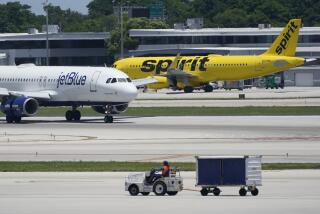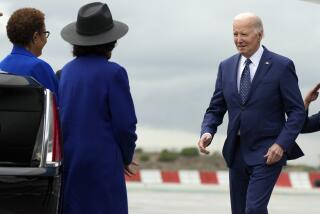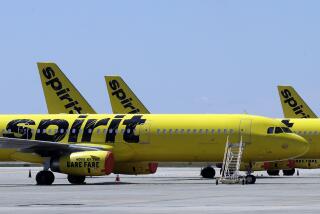Goodbye, Dubai
PROTECTIONISTS, REJOICE! The dastardly United Arab Emirates company that would have presumed to unload containers of underwear and toothpaste on U.S. soil has backed down, and it will now divest its U.S. port interests to an American entity. Rest assured, the nation is now safe from dangerous Middle Eastern accountants and port logistics specialists.
Dubai Ports World did what was necessary, if not necessarily fair, on Thursday by agreeing to give up the U.S. operations of its newly acquired British ports company. The House Appropriations Committee had voted 62 to 2 on Wednesday to block the deal; a similar bill was pending in the Senate.
Although President Bush rightly stood by the acquisition and vowed to veto any bill that stood in its way, he was fighting a losing battle that only deepened a growing rift in the Republican Party. Dubai Ports World officials wisely recognized that they had to put some distance between themselves and their new U.S. assets. The company probably will sell its U.S. assets or create a U.S. company with a separate board to run them.
Much as we wish it would go away, the fight may not be over yet.
For one, the terms of the divestiture remain unclear, and some members of Congress are demanding more details. Will it be enough for Dubai Ports World to create a U.S. subsidiary? Will it have to open headquarters in the United States? Pay its employees in dollars?
For another, the flurry of disastrous bills the deal has inspired may yet find their way into law. Besides efforts to block the U.S. portion of the Dubai Ports World transaction, these include bills that would damage trade relations even further by restricting other foreign companies from taking over port operations. This despite the facts that such operations are dominated by foreign companies, that the bulk of the workers who actually load and unload containers are American longshoremen and that these companies have nothing whatsoever to do with port security, which is handled by U.S. government agencies such as the Coast Guard and Customs.
One has to wonder where this will end. Should a Saudi-owned airline be denied landing rights in the United States because most of the 9/11 hijackers were Saudis? That’s the logic used by opponents of the Dubai Ports World deal, who fret that two of the hijackers came from the UAE and that its government supported the Taliban before the invasion of Afghanistan. Never mind that the UAE is a key ally and a hub for U.S. military operations in the Middle East.
The Dubai Ports World fiasco is unfortunate and embarrassing on many levels. But the damage can be contained as long as Congress does not start treating every private transaction involving ports the way it treats any deal involving defense contractors. (Foreign companies often must create a U.S. subsidiary to get business from the Pentagon -- which makes sense, given that they are directly involved in U.S. security in the way that port operators aren’t.)
It’s true that keeping the United States secure in an increasingly globalized economy is a delicate balancing act. But members of Congress should realize that boosting trade with Middle Eastern countries is crucial to defusing tensions in the region and improving the U.S. image there. By that standard, this deal was a no-brainer -- to go forward.
More to Read
Sign up for Essential California
The most important California stories and recommendations in your inbox every morning.
You may occasionally receive promotional content from the Los Angeles Times.










